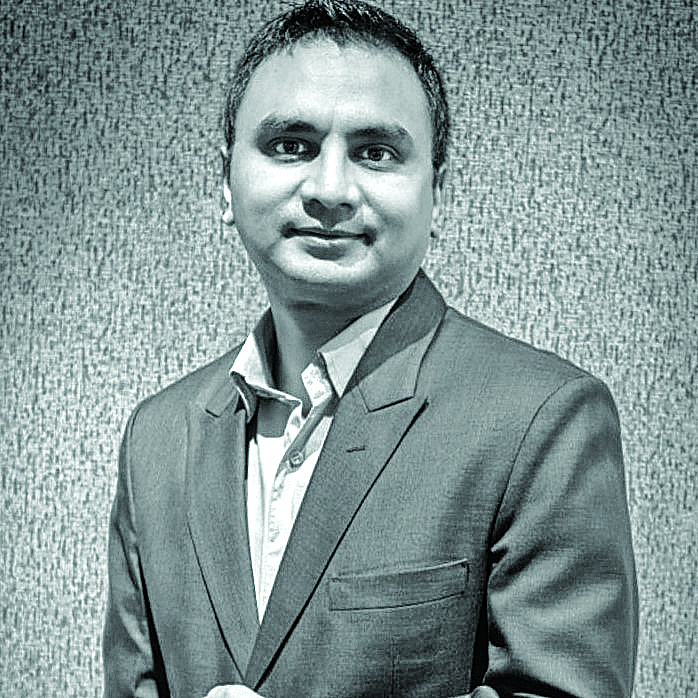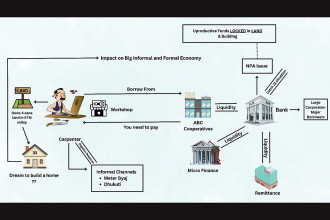-min-1723792286.png)
Shinise is a Japanese term for long-established businesses that have been in operation for a long time, at least for a hundred years. In an attempt to build Shinise in Nepal, Global Equity Fund (GEF), over the past five years, since its establishment has analysed a diverse range of companies. The team has analysed not only financials but qualitative aspects, including founders, regulatory aspects, consumer demands and industrial sentiment. While not claiming mastery in company analysis, GEF has identified traits in companies that have failed or underperformed. These insights highlight crucial factors for creating long-lasting and resilient companies in Nepal, capable of growth in good times and which have the ability to sustain in bad times, thereby fostering long-lasting enterprises.
The Debt Trap
Among the companies assessed by GEF, a very few of them maintained low or no debt, while most exhibited leverage equal to or exceeding equity. While leverage is a boon when the interest rates are low and economy is booming, the downside effect is equally catastrophic when the rates increase and economy subsides (which actually happens simultaneously in most of the cases). Companies with high leverage face an elevated risk of insolvency under such circumstances. Moreover, many entrepreneurs, encouraged by economic booms, tend to expand capacity without considering economic cyclicity, thereby increasing their debt and operational costs. When economic downturns occur, these businesses struggle with rising interest rates and declining revenues.
While there may not be a thumb rule to how much debt is reasonable, sensitivity analysis to test the companies’ financials under high interest rates and/or lower revenues would help assess comfortable debt levels in any company. With comfortable debt to equity ratios, a company can survive the bad times and when it reaches good times, it will have far less competitors (most of them faltering during bad times due to reasons mentioned above).
Shinise is a Japanese term for long-established businesses that have been in operation for a long time, at least for a hundred years. In an attempt to build Shinise in Nepal, Global Equity Fund (GEF), over the past five years, since its establishment has analysed a diverse range of companies. The team has analysed not only financials but qualitative aspects, including founders, regulatory aspects, consumer demands and industrial sentiment.
Single Founder – No one to share
Entrepreneurship is a very demanding path, particularly in developing economies like Nepal. Apart from running the business on a day-to-day basis, an entrepreneur must also understand and navigate regulatory complexities and compliance requirements. Ideally, businesses should have at least two co-founders, who bring complementary skill sets, share responsibilities, and provide emotional support. Co-founders facilitate rational decision-making, succession planning, and team-based decision-making, which enhances productivity. While having a few co-founders is beneficial, having too many can be detrimental. Therefore, the ideal number of co-founders is typically two to three.
Revenue vs Profits
A lot of companies that were assessed by GEF, had prioritised revenue growth without due focus on costs. While this approach may be suitable for the tech-enabled companies that aim to achieve significant market share before leveraging cross-selling or price increases to drive profits, like the cases of Amazon and Jio, it is crucial for management to have a clear understanding of the optimal revenue size before pursuing improvements in bottom line.
Unfortunately, we have seen companies looking to expand revenues, while their return on equity is meagre in single digits or at times even negative. This looks extremely dangerous if revenue expansion is funded with high amount of debt, and at an interest rate that is higher than the return on capital. These companies fall under the gruesome companies’ category, as labelled by Warren Buffet.
In these cases, it is preferable for companies to remain small but have high return on equity, allowing promoters to receive high cash dividend that can be further invested into other opportunities. Pursuing higher revenues with lower returns increases vulnerability, particularly during bearish economy, where such companies are often the first to face significant challenges.
Catering to all markets
While many companies focus on their target market, there are some that attempt to cater to both mass (cost-based approach) as well as niche (differentiation approach) simultaneously. This dual approach often results in the use of the same production facilities and similar raw materials for both product lines, leading to uncertainty among promoters and management about when to shift focus from one product to another. Also, the company then does not specialise in its competitiveness, either cost or creating brand. It often takes years for the management to realise their mistake, if the company survives long enough to do so. During the time, it will lose both market share in the mass as well as niche market due to its ever-fluctuating strategy (if we can call it strategy) and focus.
It is easier to aim for a specific market and then work to re-enforce its competitive advantage. This can be achieved through cost-efficient measures such as process re-engineering, procurement or by distribution efficiencies or by enhancing brand value and offering unique proposition and product designs to the niche market.
Ad-hoc decision-making
Most businesses do not outlive their founders, and often fail to last a decade. One major cause for this is a one-person decision-making system, where the founder, having taken significant risks, makes decisions for all aspects of the company, often prioritising speed over rational data-based approach. While this may be effective for a small company, as the company grows and as competitors and markets evolve, it becomes essential to transition to a team-based, data-centric decision-making process and establish a robust governance structure. Delegation of authority (this is imagined as sharing power in the minds of founders) seems harder even for members of the founder’s family. This often results in a lack of succession planning, creating a leadership vacuum when founders can no longer compete effectively, ultimately limiting the business’s longevity.
Consideration to ESG
In Nepal, companies have commendably high standards for ESG consideration and incorporation in their businesses. Smart entrepreneurs have integrated ESG principles, reflecting our cultural and religious emphasis on the importance of environmental and societal well-being. Any activity that goes against the wellbeing of the environment and society is scrutinised publicly, and has to be avoided. Beyond mere compliance, companies engage in various initiatives to promote environmental sustainability and social welfare. These include afforestation efforts, water treatment and reuse, avoidance of harmful chemicals, promotion of organic farming, and sourcing green energy. Additionally, by prioritising local employment, contributing to education and healthcare, and participating in community festivals, businesses enhance their social acceptability and long-term viability.
A key area for first-generation entrepreneurs to focus on is governance, which is critical for building enduring businesses. Key aspects such as rational decision-making, delegation of authority, and sharing roles and responsibilities are fundamental to establishing a business that can outlive the founders and ensure its longevity.
Conclusion
Building Shinise in Nepal represents a vision for creating businesses that not only thrive but endure for centuries. The insights garnered by GEF provide a roadmap for achieving this vision. By focusing on prudent financial management, fostering collaborative co-foundership, prioritising profitability, targeting specific markets, adopting structured decision-making processes, and integrating strong ESG principles, Nepali enterprises can lay a robust foundation for long-term success. As we look to the future, the implementation of these strategies will be pivotal. Companies that embrace these principles will be better equipped to navigate economic cycles, outlast their competitors, and contribute to Nepal’s economic development. By building resilient and sustainable businesses, we can foster a landscape where companies flourish, driving growth, stability and prosperity for generations to come.
► Ujjwal Chand works as Chief Investment Officer at Global Equity Fund. He has over a decade of investment management experience in Nepal. He sees Private Equity Venture Capital as a major source of capital to build sustainable and ethical businesses in Nepal.





-1758271497.jpg)
